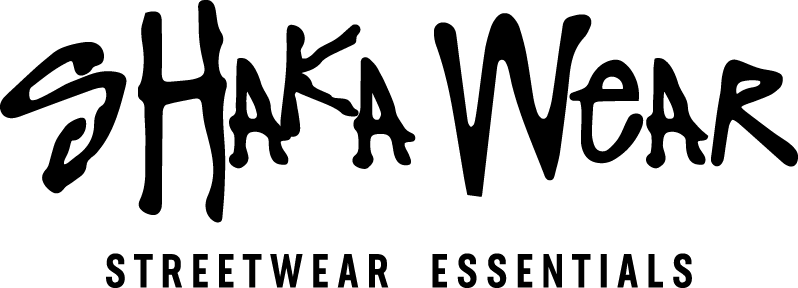Free DTF Sample Packs: The Ultimate Guide to Testing Before You Invest

Posted by AllDayShirts on to Printing Business Tips, Printing Techniques.
Free DTF Sample Packs: The Ultimate Guide to Testing Before You Invest
For anyone working in the custom apparel industry or considering launching their own clothing brand, choosing the right printing method is one of the most important decisions you'll make. In recent years, Direct-to-Film (DTF) printing has rapidly become a favorite for startups, print shops, and apparel brands alike. But how do you know if it’s right for you?
That’s where Free DTF Sample Packs come in.
Instead of investing hundreds or even thousands of dollars in equipment or large print runs, a free sample pack lets you test transfer quality, evaluate wash performance, and gain confidence in your supplier — all at zero cost. This blog post is a comprehensive guide to understanding what DTF sample packs are, why they’re valuable, what to expect, where to get them, and how to use them effectively.
Whether you're new to DTF or already deep into the apparel game, this post will help you make smarter purchasing decisions.
What Is DTF Printing?
DTF, short for Direct-to-Film printing, is a process where a design is printed onto a PET film using a specialized printer, then coated with a hot-melt adhesive powder. After the powder is applied and cured, the transfer is pressed onto the garment using a heat press.
Unlike traditional printing methods like screen printing or sublimation, DTF offers several key advantages:
Works on a wide range of fabrics, including cotton, polyester, blends, fleece, nylon, and more.
No need for pre-treatment or specialized surfaces.
Ideal for detailed, full-color designs.
Durable, stretch-resistant, and wash-friendly results.
Cost-effective for small runs and scalable for large orders.
Because of its flexibility, DTF is particularly well-suited for print-on-demand businesses, small batch fashion brands, event merch, and promotional apparel.
What Is a DTF Sample Pack?
A DTF sample pack is a small collection of pre-printed transfers sent by a supplier or print company. The goal is to let you test the quality, color, durability, and ease-of-use of their DTF transfers before placing a full order or setting up a partnership.
Typically, a free DTF sample pack includes:
Multiple sample transfers with different designs or textures.
Pressing instructions including time, temperature, pressure, and peel method.
Information about the types of fabrics the transfers work best on.
Contact details or discount codes for future orders.
These packs are used to help businesses determine if a supplier’s product matches their quality expectations and production needs.
What to Expect in a Quality Sample Pack
While each supplier may include slightly different contents, here are the most common and valuable items found in a well-made DTF sample pack:
Variety of Transfer Styles
Expect to receive transfers that show off different print types. For example:
Bold, high-contrast logos.
Detailed, fine-line artwork.
Gradient or color-rich designs.
Soft-touch or matte vs. glossy finishes.
This range helps you evaluate how the transfer behaves across design styles.
Application Instructions
Every reputable DTF provider should include clear application instructions. This includes:
Ideal press temperature (typically between 280°F and 320°F).
Pressure guidelines (medium to firm).
Press duration (usually 10 to 15 seconds).
Hot peel or cold peel technique.
Following these directions is critical for proper adhesion and long-term durability.
Compatibility Details
A good sample pack will indicate what fabrics the transfer works best on and whether any materials are not recommended. DTF is known for its wide compatibility, but some variations may exist depending on ink, film, and powder types used.
Company Information and Support
Expect to receive brochures or inserts that introduce the brand and their offerings. Some companies include discount codes or first-order incentives. Others may offer phone support, design tips, or sample reorder options.
Why Requesting Free DTF Samples Is Worth Your Time
Whether you're just exploring DTF or preparing to scale your production, testing samples before committing to a supplier has real business benefits.
Save Money
Without a sample, you may commit to a print run or batch that doesn’t meet your standards. DTF supplies are not cheap, and wasted transfers or apparel can significantly eat into your profit margins. Samples give you the ability to test for free and avoid costly mistakes.
Compare Multiple Vendors
There is a wide range of DTF providers, and their products vary in quality, pricing, turnaround time, and consistency. Sampling multiple providers helps you make a data-driven decision. You may find that one supplier has better color accuracy, while another offers faster shipping or lower minimums.
Validate Fit for Your Application
Are you printing for athletic wear? Cotton-heavy streetwear? Polyester uniforms? Use your samples to confirm which transfers work best with your fabric of choice. Poor adhesion or cracking under stress will show up in real-world testing.
Build Customer Confidence
If you're building a brand, customers expect consistency and quality. Testing ensures that what you deliver lives up to expectations. A poor first impression can cost you repeat buyers and harm your reputation.
How to Evaluate Your DTF Sample Pack
Once you receive your sample pack, here’s how to properly test it for quality, versatility, and durability:
1. Use a Reliable Heat Press
Avoid using an iron or an uncalibrated press for testing. A quality heat press ensures even pressure and accurate temperature — both critical for ensuring the transfer applies as intended. Inconsistent pressure or heat can result in faulty adhesion or premature wear.
2. Apply to Multiple Fabrics
Use your DTF sample pack to test how transfers perform across a variety of fabric types and constructions. This helps evaluate how well the design adheres, stretches, and maintains color on different surfaces, including:
100% cotton
100% polyester
Cotton-poly blends
Fleece or French terry
Nylon or performance fabrics
To get the most accurate results, try applying your transfers to garments with different fabric compositions and weights. Here are two recommended options:
Gildan G500 – A classic 100% cotton tee, ideal for testing how your transfers behave on natural fibers. It's great for evaluating color vibrancy, stretch, and durability on a lighter-weight cotton base.
Vesti IT645T – This oversized heavyweight tee provides insight into how DTF transfers perform on thicker, premium garments. Its dense weave and elevated structure let you assess how transfers hold up on fashion-forward cuts and more substantial materials..
3. Perform a Wash Test
After applying the transfer, wash the garment multiple times and observe the results. Pay close attention to:
Adhesion after repeated washes
Color retention and vibrancy
Resistance to cracking, peeling, or fading
Many low-quality transfers break down after 3–5 washes — so this test is crucial.
For creative inspiration and to see how DTF can be used to produce bold, intricate, and high-impact designs, check out this in-depth guide to unlocking creative possibilities with DTF.
Stretch and Flex Test
Stretch the garment or press area to simulate real-world use. A good DTF transfer should stretch with the fabric and recover its shape without visible damage.
Feel and Finish
Touch matters in fashion. Customers care about the texture and hand feel of the print. Some DTF transfers feel rubbery or overly stiff, while others feel soft and natural. Assess this based on your brand positioning.
One of the top choices for blank apparel and custom printing services, AllDayShirts.com offers free DTF sample packs to help customers evaluate quality before ordering. They also offer:
No minimums
Print-on-demand fulfillment
Fast turnaround and low-cost shipping
Affordable blanks for custom printing
Visit their website and submit a sample request form. Their customer service team typically responds quickly, and you’ll receive clear directions on how to use the transfers.
Using Samples to Build a Stronger Business
Free samples aren’t just for testing — they’re powerful tools that can help you strengthen multiple areas of your business. When used strategically, samples can support everything from staff training to customer acquisition.
Train Your Team
If you have employees or production staff, use the sample pack to train them on:
Proper heat press technique
Placement accuracy
Handling and storage of transfers
This ensures consistency and quality across every print job.
Improve Product Development
Samples offer hands-on feedback that can guide design decisions for new apparel lines or seasonal collections. You'll better understand which print styles, placements, and materials work best together.
Optimize Your Storefront
Running an e-commerce site or Etsy shop? Use your applied samples to:
Photograph garments for listings
Create engaging social media content
Show off your print capabilities in action
These visuals enhance buyer confidence and boost conversion rates.
Build Trust With Clients
For custom print shops or B2B sellers, showing physical samples builds credibility. Clients can feel and inspect the print quality firsthand — which helps close bigger orders and improves client retention.
Want a broader framework for how to use sample testing strategically? Explore how to conduct effective sample testing to build trust, improve product quality, and streamline decision-making.
Print-On-Demand and DTF: The Perfect Pairing
For small business owners looking to scale, print-on-demand (POD) using DTF is a game-changer. With POD services from companies like AllDayShirts.com, you can:
Upload your artwork
Sell through your website or marketplace
Let the supplier print and ship directly to your customer
This model removes the need for bulk orders, inventory, or warehouse space. Using DTF means you still get high-quality, long-lasting prints without the upfront investment.
Conclusion: Test First, Print Better
The rise of DTF has opened doors for more creative, flexible, and profitable apparel production than ever before. But not all transfers are created equal.
Requesting a free DTF sample pack is a smart, risk-free way to ensure you’re making the best decision for your brand or business. You’ll gain insight into quality, reliability, and product fit — and ultimately serve your customers better.
If you're ready to level up your custom apparel production, request your free sample from AllDayShirts.com today. It’s the easiest way to take your designs from concept to reality with confidence
- Christmas Fun Starts with Custom Hoodies & Crewnecks Using DTF Printing
- Thanksgiving DTF Apparel: Create Cozy, Colorful, and Custom Looks This Holiday Season
- Halloween DTF Apparel: Create Spooky Custom Looks with Jerzees 562 and 996 from AllDayShirts.com
- The Ultimate Guide to Soft Style Gildan Fleece: Comfort, Style, and Value for Every Wardrobe
- Why Acrylic Beanies Are a Unique Challenge
- Jerzees Fleece: The Perfect Blend of Comfort, Style, and Value
- Back-to-School DTF Printing: The Ultimate Guide to Custom Apparel for Students and Schools
- Image Enhancer for DTF Printing: How to Unlock Sharper, Brighter, and More Professional Prints
- How to Apply UV DTF: The Complete Step-by-Step Guide
- Introducing Print-on-Demand Hats: Featuring the Richardson 112, Otto 5-Panel Mid Profile Cap & High Crown Mesh Back Trucker



























